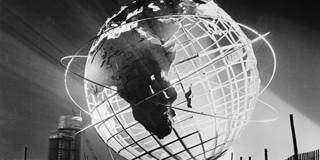Global markets are now more important than national markets for small and medium-size countries, and approaching that status for large economies. The emergence of such a truly global capitalism means that more and more economic activity will no longer be embedded in the politics or regulatory systems of various nation-states.
WASHINGTON, DC – From the end of World War II to the mid-2010s, economic globalization progressed relentlessly through expanded trade, proliferating capital flows, faster (and cheaper) communication, and, to a lesser extent, human migration. Yet, even as these linkages have deepened and multiplied, the global economy has remained fundamentally a collection of national economies, each embedded in national politics. This is now changing.
In the democratic countries that have built the market capitalism that dominates the world today, the building blocks of the economy – taxation, public spending, and regulatory frameworks – are enacted by the legislature and interpreted by the legal system. This lends legitimacy to them and the economic activities they facilitate.
But a shift is occurring: global markets already are more important than national markets for small and medium-size countries, and they are approaching that status for large economies. In less than a decade, it will be the huge world market, rather than national markets, that allocates capital, finance, and skilled labor. Many firms will be truly multinational, with headquarters located in one place (probably where tax liabilities can be minimized), production and sales happening largely elsewhere, and managers and workers sourced from all over the world.

WASHINGTON, DC – From the end of World War II to the mid-2010s, economic globalization progressed relentlessly through expanded trade, proliferating capital flows, faster (and cheaper) communication, and, to a lesser extent, human migration. Yet, even as these linkages have deepened and multiplied, the global economy has remained fundamentally a collection of national economies, each embedded in national politics. This is now changing.
In the democratic countries that have built the market capitalism that dominates the world today, the building blocks of the economy – taxation, public spending, and regulatory frameworks – are enacted by the legislature and interpreted by the legal system. This lends legitimacy to them and the economic activities they facilitate.
But a shift is occurring: global markets already are more important than national markets for small and medium-size countries, and they are approaching that status for large economies. In less than a decade, it will be the huge world market, rather than national markets, that allocates capital, finance, and skilled labor. Many firms will be truly multinational, with headquarters located in one place (probably where tax liabilities can be minimized), production and sales happening largely elsewhere, and managers and workers sourced from all over the world.